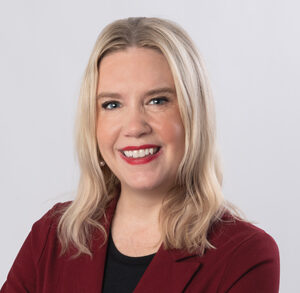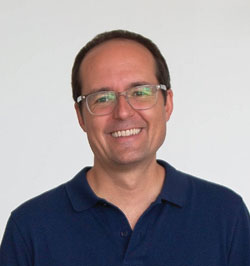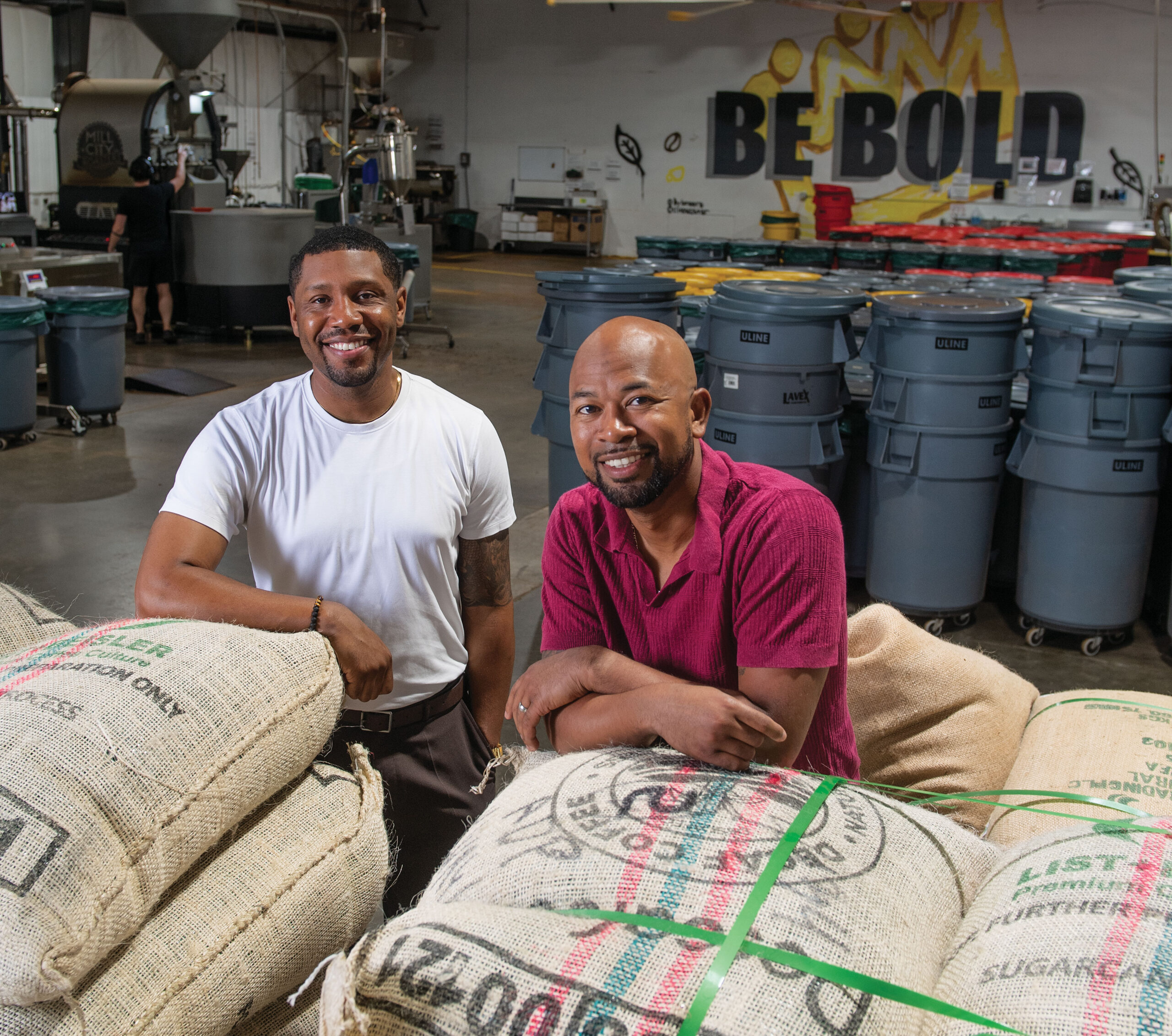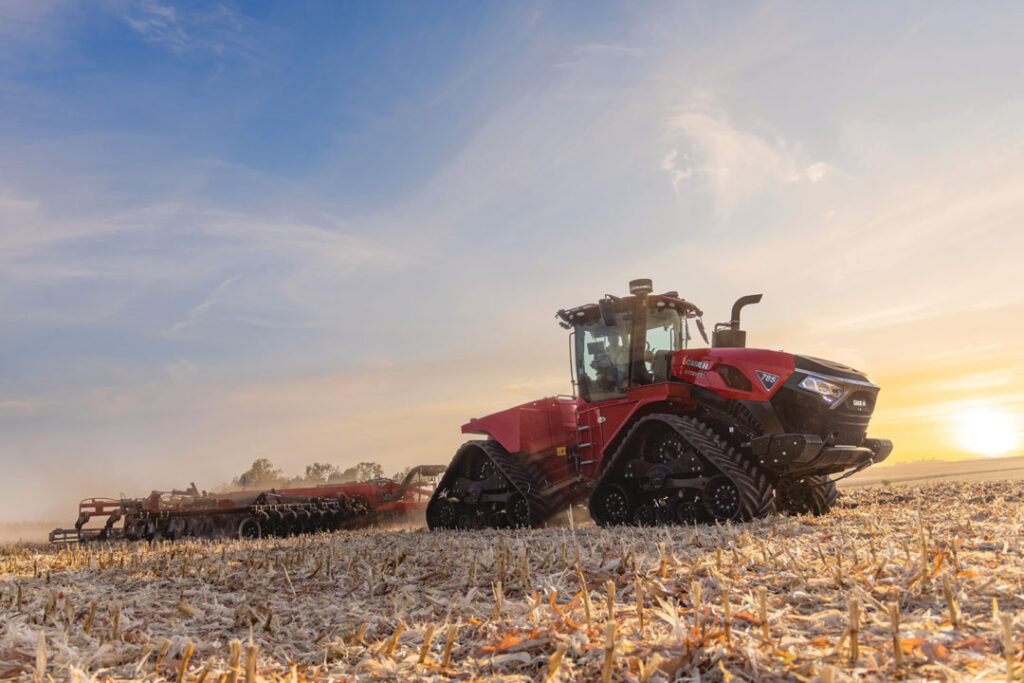Meet three Iowa organizations pursuing purpose over profits

Lisa Rossi Aug 1, 2025 | 6:00 am
11 min read time
2,568 wordsAll Latest News, Innovation and EntrepreneurshipSocial impact startups in Iowa are changing the world, one cup of coffee, one click and one plastic bottle at a time.
Across the nation, many entrepreneurs are fueled by a sense of purpose over profits. Just look at Patagonia, which funnels its voting stock to a trust that was created to protect the company’s values and its non-voting stock to a nonprofit dedicated to fighting the environmental crisis.
Or Toms, the shoe company that donates one-third of its profits to grassroots causes. Or Bombas, the essentials clothing brand that donates clothing based on what is purchased.
The latest generation of new entrepreneurs is more interested in social entrepreneurship than previous generations, said Joe Sulentic, associate professor of practice at the University of Iowa Tippie College of Business, in the department of management.
“Students definitely want to feel that they are contributing to something, that they have control or influence over something,” Sulentic said. “They really have grown up with fairly dire predictions — climate change, or … microplastics. So when they engage in a project … their attitude changes to one … that, ‘Oh, I can make a difference.’”
Some businesses looking to make a social impact might seek a B Corporation certification, which is an international designation, said Danette Kenne, assistant dean, strategic initiatives, at the Drake University Zimpleman College of Business.
Certification standards include stakeholder governance, fair work, justice, equity, diversity and inclusion, environment stewardship and government affairs, and collective action, which refers to companies playing a leadership role in “fostering shared understanding and implementing solutions toward an equitable, inclusive and regenerative economy,” according to the B Lab Global website, the entity that certifies businesses.
“So if you think of a traditional for-profit business model, we talk about shareholders. With a B Corporation, they’ll talk about stakeholders,” Kenne said.
There are over 9,500 B Corporations worldwide and over 3,200 in the U.S., she said, citing data from B Lab Global. There are “just a couple” B Corporations in Iowa, she said.
We sat down with three social impact startups in Iowa at different stages in their journeys: one mature, one developing and one in its infancy.
From a garage to a warehouse: BLK & Bold grows but stays true to its roots
Growing up in Gary, Ind., Pernell Cezar and Rod Johnson became friends in their early teens.
They lived near each other and bonded over basketball and music – 50 Cent and Alicia Keys.
Now, well into their 30s, the duo bonds over something they may have never imagined as kids in Gary: coffee and giving back.
“From then to now, we have similar interests in raising our families … making sure that we are leveraging who we are to give back to communities like Gary, Ind., so our values and morals continue to be aligned, and are a lot deeper these days,” said Johnson, co-founder and chief values officer of BLK & Bold, a Des Moines-based coffee brand. “And we continue to grow and evolve, as men.”
The two friends had their first conversation about starting a social impact coffee company in August 2017, the beginning of a series of phone calls they had while working their corporate jobs but wanting something different. Cezar was working at Target building new brands that would appear in stores. Johnson worked in the nonprofit world as a professional fundraiser for academic and health care institutions.
“If we were going to leave the ascension that was taking place for us both respectively, it had to be for something that was meaningful,” Johnson said.
From the beginning, they made a promise. They would donate 5% of gross profits to communities across the United States that empower underserved youth.
That was the foundation of the company, even before they were making a profit, Johnson said.
“It was more so just advocating for the type of work that we wanted to do, and communicating what we were about, how we were different from other coffee brands,” he said. “We’ve led with social impact from the beginning. So even when we didn’t have the funds or the profits to donate, that was still a part of the message. It was us holding ourselves accountable in public.”
In 2018, the co-founders started roasting beans in Cezar’s Des Moines home’s garage and opened their “virtual doors,” Johnson said. They were learning as they went, scouring YouTube for tutorials and seeking mentors. By 2020, they had both quit their full-time jobs, the same year they became profitable.
After expanding to a space in the back of the former Fox Brewing in Valley Junction, they landed their first big break: a deal with Target.
Then the pandemic happened.
“Once we launched into Target, the world shut down,” Johnson said. “So it was like, ‘All right. Now what do we do?’ Because that’s what we were banking on. We were banking on their retail distribution, and then, when you tell the world to not go outside, how can a business sustain?”
Fortunately, the business’s go-to-market strategy was e-commerce, he said.
“Because we had already been more mature on e-commerce, that allowed us to welcome newcomers into our ecosystem,” he said. “People who were displaced from their daily habits of going to their local coffee houses have to now get more resourceful and figuring out, ‘OK, how can I get my caffeine?’”
BLK & Bold was “bursting at the seams” in the tiny space at Fox Brewing, between about 500 and 1,000 square feet. The company moved to a warehouse in July 2020 on the western edge of Park Avenue, a substantial upgrade. That space, its current production facility, is 33,000 square feet.
Now, the brand continues to mature. A certified B Corporation, products can be found in over 11,000 retail locations, including most recently in nine Costco locations across Iowa, Missouri and South Dakota. It has donated $450,000 since 2020 to its community partners, including the By Degrees Foundation in Des Moines, which supports children with a savings account program, among other services..
Johnson said the brand recently partnered with SGS Global, a testing, inspection and certification company. The plan is to identify BLK & Bold’s carbon footprint through the partnership and “develop a plan to do something about it,” Johnson said.
“It’s … [in] the very early stages of us leaning more into being a social enterprise across all spectrums,” he said.
Also, the company is looking for its own brick and mortar location in the Des Moines area, Johnson said, although he said it’s to be determined when that will launch.
And, the co-founders recently launched the BLK & Bold Foundation, the official nonprofit complement to BLK & Bold, Johnson said.
“We have a huge goal with the BLK & Bold Foundation, and that is by the year 2045, [we] have impacted 72 million children, and we’re going to do that by community-building, by positioning BLK & Bold to be the nucleus of this nonprofit ecosystem that we are building,” he said. “Know that social impact is the fuel for the BLK & Bold engine.”
Transforming purchases into a force for good

There comes a point in many people’s lives and careers where they start to think about what really matters, said Matt Ostanik, founder and CEO of the Grateful Giving Foundation, a microdonation platform.
“I’m just at a point in my life and career where I wanted to focus on something that was more socially impactful and more focused on giving back,” said Ostanik, from Dallas Center, who described himself as a “serial entrepreneur.”
“I also love technology, and I believe technology can be a great force for good in the world as well,” he said.
Ostanik started the Grateful Giving Foundation as a B Corporation initially and then transitioned it to a nonprofit model in 2023.
“I didn’t start this to make money,” he said. “I started this to use technology to make a significant social impact.”
He said Grateful Giving’s technology exists to “transform everyday purchases into a force for good.”
Through the platform, users can dedicate a small amount of every purchase they make to charity.
Ostanik said the platform works with three different audiences: individuals who use the platform to make microdonations, businesses that give small amounts when their customers spend money on them and nonprofits that receive the donations.
Individual users choose which charity or charities to donate to from a database of over 1.5 million U.S. nonprofit charities, he said.
“And they choose the amounts,” he said. “It’s a micro-donation, so we encourage users to donate 0.5% of their spending, which is the equivalent of 1/2 penny for every $1. But they can pick any amount they want and set a monthly limit on it too.”
Grateful Giving has more than 5,000 users and has sent donations to more than 3,000 charities across the country, he said.
There are 24 different categories of nonprofits on the platform, he said. The top categories are hunger and food insecurity, children and families and education. Each of those categories gets around 6% of the donations, he said.
As a nonprofit, Grateful Giving is funded by donations to pay for the cost of building and running the technology. It also relies on volunteers.
We have a growing community of over 200 people across the country that are volunteers for us,” Ostanik said. “Some of those people serve on … leadership councils, which are groups of local volunteers … that help us with reviewing local nonprofits and further marketing the platform.”
The nonprofit also has a national board of directors with more than 20 people across the country.
The biggest insight he’s gained since working in the charitable giving space is “there’s so many needs.”
“We live in a very challenging time,” he said.
Also, “there’s a growing interest in the nonprofit sector to use more tech tools to give them more resources,” he said.
Ostanik has experience in the startup realm; among the startups he’s founded is Submittal Exchange, a construction software platform for managing documents on commercial construction projects. He sold Submittal Exchange to a larger company in Chicago and worked for that company for a few years. The company did an IPO on the New York Stock Exchange and then in turn was acquired by Oracle. He also founded FunnelWise, a marketing and sales analytics software. He said it wasn’t the “right timing” and closed the business in 2018.
He learned a lot from his experience operating startups, he said.
“They talk a lot about how to build a tech startup in the sense that it’s a continuous learning journey to figure out the right fit for your product, how to grow it, how to gain support for it, how to do everything from customer interviews, to actually writing the software code to building the marketing around it, to spread the awareness of it and to engage your audience,” he said. “And it takes a lot of work. It’s exciting. It’s thrilling. I can’t imagine doing anything else. I love building startups, but it also – it’s not for everybody, and it takes a lot of work. You’re deeply passionate about it, and there’s a lot of ups and downs.”
A passion for eradicating plastic waste

Shaden Tweeten’s passion for recycling and reducing plastic waste all started in his high school chemistry class.
The aha moment happened when his teacher said we can design things to last, but we can also design things not to last to encourage consumerism.
“My brain was like, ‘Why don’t we just make the product as good as we can make it?’” Tweeten said. “And that led to my degree in material science and engineering.”
Tweeten, who graduated from Iowa State University in 2022, focused on plastics while earning his degree and continued to travel down the rabbit hole, reading and watching documentaries.
“It really spurred my cause into wanting to do something about plastic waste, because it is something that we don’t talk enough about, and it’s something that impacts all of us,” said Tweeten, from Forest City.
And early this year, he established an LLC, CaptuRE Recycling, which aims to repurpose plastic waste from north Iowa into items that are useful and educate the public about recycling.
“In the U.S., we recycle maybe about 5% of all the plastic that we generate, and so all that is ending up in the landfill,” he said. “It’s ending up in our bodies and the environment.”
Tweeten is sacrificing for the cause he discovered in high school. He left his full-time job at Cambria, a quartz countertop manufacturer, last summer so he could start working on his idea. He moved back home from Minnesota to rent his late grandmother’s house in Forest City.
“The road is very barren and a very long and winding one, because I’m on my own path,” he said of plunging into entrepreneurship. “I can’t necessarily gauge my progress with any of my classmates who have structured jobs, or are working in government or other things like that. And I can’t necessarily compare myself to other businesses because there’s not a whole lot of people that are going in the direction that I know.”
He said he’s constantly questioning himself.
“But I am sound on the fact that I go with the overall idea that I want to do this because I believe it fulfills my purpose in helping our community, helping our state and just our world in general – then I’m going in the right direction.”
Tweeten is gaining traction, even as his business is in its infancy.
This summer, he participated in two pitch competitions at EntreFest in Cedar Rapids and he was a finalist in the Hy-Vee pitch competition that had criteria seeking businesses that were focused on making an impact.
He also participated in the University of Iowa Venture School program at the North Iowa Area Community College John Pappajohn Entrepreneurial Center last fall, where he worked on customer discovery and developing his business model with entrepreneur coaches.
At the launch day competition, seven teams competed and three top prizes were awarded. Tweeten won first.
He said the customer discovery part of the process was especially enlightening.
“The biggest thing I learned was that everybody wants to recycle, but nobody knows what’s actually happening to the recycling,” he said.
He said most people assume if they put out the recycling bin, it gets recycled.
“The reality of that is that’s mostly not true, especially in rural areas where we don’t have the logistics and capabilities of sorting out this plastic and turning it into something better. And so what ends up happening is it gets put into the landfill.”
Tweeten is awaiting a shipment of equipment – a shredder and a sheet press – that will allow him to turn plastic waste collected from communities or businesses into plastic sheets that could be used for consumer goods.
Tweeten has a few takeaways he wants people to know about recycling and reducing their use of plastics, like using reusable bags at the grocery store.
“I’ve started to adopt the mindset of the most sustainable purchase you can make is the one that you never have to make at all,” he said. “And once you adopt that idea, you really start to look at things that you buy and wonder, ‘Gosh. Do I really need that?’”

Lisa Rossi
Lisa Rossi is a staff writer at Business Record. She covers innovation and entrepreneurship, insurance, health care, and Iowa Stops Hunger.










